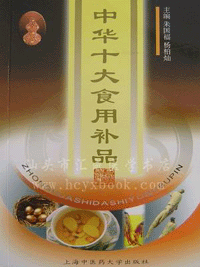为保健品“正名”!
[ 2007-06-15 13:28 ]
| 日前,为规范保健食品的命名,国家食品药品监督管理局发布了《保健食品命名规定(试行)》,规定保健食品名称不得使用“高效、速效、第几代”等虚假、夸大和绝对化的语言;不得使用消费者不易理解的专业术语及地方方言;不得使用外语和汉语拼音。 |
|
|
|

|
|
Health foods and
tonics are popular in China |
Chinese health foods will no
longer be allowed to make exaggerated claims about their effects or have names
that are too long, too confusing or "feudal", according to new government
rules.
The use of foreign languages and the romanised form of Chinese called
"pinyin" are banned and health foods cannot be named after human organs, the
State Food and Drug Administration said.
"You cannot use words tainted with vulgarity, feudalism or superstition," the
watchdog said in rules posted on its Web site (www.sda.gov.cn).
"You cannot use technical language or dialect words which are hard for
consumers to understand," it added.
"Names must reflect the actual properties of the product, be concise, easy to
understand and in line with Chinese language customs," the watchdog said. "You
cannot use false, exaggerated or absolute language, such as 'the most effective,
fastest acting, latest generation'," it added.
Health foods and tonics are popular in China, often claiming to contain
special medical herbs which can help with everything from baldness and impotence
to lack of concentration.
The quality and safety of China's food and drug products have come under
scrutiny around the world since reportedly tainted pet food caused the death of
cats and dogs in the United States.
Public fears grew in China in 2004 when at least 13 babies died of
malnutrition in Anhui after being fed fake milk powder with no nutritional
value.
(Agencies )
Vocabulary:
health foods:
保健品
(实习生江巍
英语点津陈蓓编辑) |